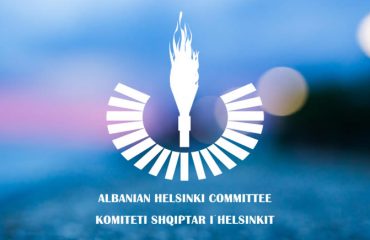On the occasion of Anti-Corruption day, on 9th of December 2021, Albanian Helsinki Committee consulted in a technical roundtable with the actors of justice system and representatives of civic society, the key findings and recommendations resulted from a professional, independent and constructive analysis of the activity of two Councils and courts with highest back-log. This activity was part of the justice reform initiative, funded by the Small Grants’ Program of the Commission for Democracy of the USA Embassy in Tirana[1].
The High Judicial Council (HJC) and the High Prosecutorial Council (HPC), the two key justice governing bodies, have had voluminous activity, fulfilling key priorities such as filling of some vacancies in the High Court, the creation of SPAK and the special courts, etc.
Nevertheless, the Councils were faced with difficulties, in the circumstances of their delayed establishment and considerable vacancies in the prosecution offices and courts.[2] Overall, the judicial system is responding with difficulty to the need to deliver justice for citizens, in the conditions when there are 76 vacancies of judges (about half of which in the appeals courts)[3] and 57 vacancies of prosecutors. The further filling of vacancies in the High Court still remains a key priority,[4] while one month ago, there were 36,140 (thirty-six thousand, one hundred and forty) cases awaiting trial. Further efforts are needed in order to increase the efficiency of the judiciary and the prosecution office, where the addition of legal assistants, encouragement of an internal debate among judges, and the financial support for a new system that provides real-time statistics for the judges’ caseload and cases could be considered.
The Special Courts have 14 vacancies, meanwhile the major challenge in the fight against corruption and organized crime requires the filling of vacancies, specialized staff, and necessary resources. This would contribute for carrying out proactive investigations and professional and impartial trial courts by meeting the main expectation of citizens: ending impunity of corruption, especially among the ranks of high-level officials and former officials.
AHC appreciates the efforts of the Councils, the High Justice Inspector, and the vetting bodies to collaborate, but further steps are necessary for harmonizing processes related to career and disciplinary proceedings.[5] We suggest that the vetting of candidates who seek to be promoted in their jobs is conducted at a dynamic pace, while more systematic and coordinated efforts are needed to motivate the promotion of vetted magistrates.
AHC reconfirms the suggestion to realize transparency and consultation with civil society in the process of judicial re-organization, which is delayed.[6] Sustainable efforts are needed to enable proper access to information for the media to meetings of the Councils and the publication of full information in due time and understandable manner for the broader public.
[1] Initative “Towards an efficency and better integrity of High Judiciary Council and High Prosecutorial Council
[2] Mainly as a result of vetting, resignations or other legal causes.
[3] The Administrative Court of Appelas presently is concluding the trial of judicial cases logged in 2016. The Tirana Appeals Court (general jurisdiction) is conducting the trial of cases logged in 2017.
[4] At the High Court, 9 out of 19 judges exercise their duties.
[5] The HJC has conducted promotions based on successful passing of vetting; the HPC has taken a different stance.
[6] The purpose of the new judicial map is the re-oganization of courts to increase efficiency and citizens’ access to justice.



